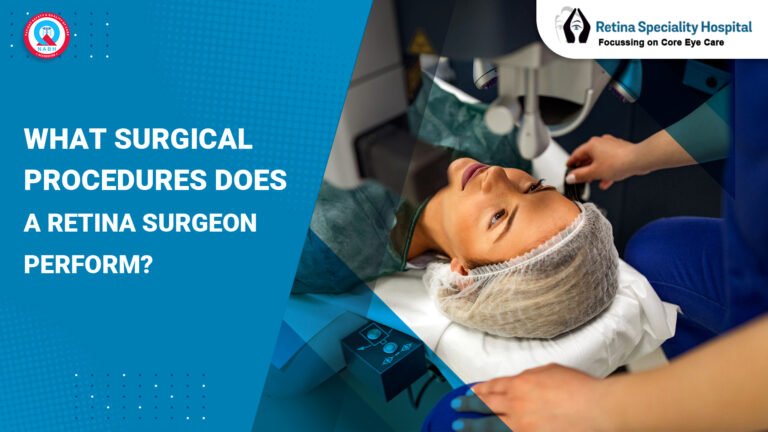If you’ve noticed blurry vision, sensitivity to light, or trouble seeing at night, you might be wondering if something’s wrong with your eyes. These could be early signs of keratoconus, a condition that affects the cornea and can worsen over time if untreated. In this post, you’ll learn the key symptoms of keratoconus, how to recognize them, and when it’s time to consult an eye specialist near you. We’ll also guide you on finding the best doctors for keratoconus treatment in Indore and why early action is critical for protecting your vision.
What Is Keratoconus?
Keratoconus is a progressive eye condition where the cornea, the clear front part of the eye, thins and bulges into a cone-like shape. This distorts vision and can make daily tasks like reading or driving challenging. Understanding the condition is the first step to managing it effectively.
- Key Point: Keratoconus often starts in adolescence or early adulthood and may progress for 10–20 years.
- Why It Matters: Early detection can prevent severe vision loss and improve treatment outcomes.
If you suspect keratoconus, visiting a keratoconus specialist in Indore can help you get a proper diagnosis and personalized care.
Early Signs of Keratoconus to Watch For
Recognizing the early symptoms of keratoconus can make a big difference in managing the condition. Here’s what to look out for:
Blurry or Distorted Vision
One of the first signs is blurry or wavy vision that glasses or contacts may not fully correct. Straight lines might appear wavy, and objects may look distorted.
- Example: You might struggle to read road signs or see fine details on a computer screen.
- Tip: Keep track of vision changes and note if they worsen over time.
Increased Sensitivity to Light and Glare
Keratoconus can make your eyes more sensitive to bright lights or cause glare, especially at night.
- Real-World Application: Night driving may become difficult due to halos or starbursts around lights.
- Tip: Wear sunglasses during the day and anti-glare glasses at night to reduce discomfort.
Frequent Prescription Changes
If your glasses or contact lens prescription changes frequently, it could be a sign of keratoconus.
- Actionable Step: Ask your eye doctor to check for corneal changes if your prescription shifts often.
- Why It Helps: Early detection can lead to treatments that stabilize the cornea.
Eye Irritation or Redness
Some people experience itchy, red, or irritated eyes due to keratoconus, especially if they rub their eyes often.
- Tip: Avoid rubbing your eyes, as this can worsen the condition.
- Solution: Use artificial tears to soothe irritation and consult an eye specialist near you.
For a thorough evaluation, consider booking an appointment with a keratoconus specialist in Indore to assess your symptoms.
When Should You See a Doctor?
Keratoconus can progress silently, so don’t wait for symptoms to become severe. Here’s when to act:
- Persistent Vision Problems: If blurry vision or light sensitivity disrupts daily life, see an eye doctor promptly.
- Frequent Prescription Changes: Rapid shifts in your glasses or contact lens prescription warrant a specialist visit.
- Family History: If keratoconus runs in your family, regular eye checkups are essential for early detection.
Pro Tip: Search for the best doctors for keratoconus treatment in Indore to find experienced specialists who can offer advanced diagnostic tools like corneal topography.
For more information on eye health, check out our guide to common eye conditions or visit trusted resources like the American Academy of Ophthalmology.
Treatment Options for Keratoconus
Early diagnosis opens the door to effective treatments that can slow or stop keratoconus progression. Here are some common options:
- Specialty Contact Lenses: Custom lenses, like scleral or rigid gas-permeable lenses, can improve vision by correcting corneal irregularities.
- Corneal Cross-Linking: This minimally invasive procedure strengthens the cornea to halt progression.
- Surgical Options: In severe cases, procedures like corneal transplants may be recommended by a keratoconus specialist in Indore.
Real-World Example: A patient in Indore who started corneal cross-linking early was able to maintain clear vision and avoid surgery. Consult the best doctors for keratoconus treatment in Indore to explore your options.
How to Find the Right Eye Specialist
Finding a qualified eye specialist near you is crucial for managing keratoconus. Here’s how to choose:
- Look for Experience: Seek a keratoconus specialist in Indore with expertise in corneal disorders.
- Check Technology: Clinics with advanced tools like corneal topography ensure accurate diagnosis.
- Read Reviews: Look for patient feedback on platforms like Healthgrades to find trusted doctors.
- Ask About Treatments: Ensure the doctor offers options like corneal cross-linking or specialty lenses.
CTA: Ready to take control of your eye health? Contact a keratoconus specialist in Indore today to schedule a consultation. Visit our eye care services page for more details.
FAQ: Common Questions About Keratoconus
1.What causes keratoconus?
A .The exact cause is unknown, but genetics, eye rubbing, and conditions like allergies may contribute.
2.Can keratoconus be cured?
A .There’s no cure, but treatments like corneal cross-linking can slow progression and improve vision.
3.How do I find the best doctors for keratoconus treatment in Indore?
A .Search for specialists with experience in corneal disorders and advanced diagnostic tools. Check reviews and ask about treatment options.
4. Is keratoconus serious?
- If untreated, it can lead to significant vision loss, but early intervention can manage the condition effectively.
Conclusion
Keratoconus can be a concerning condition, but recognizing early signs like blurry vision, light sensitivity, or frequent prescription changes can lead to timely treatment. By consulting an eye specialist near you or a keratoconus specialist in Indore, you can protect your vision and maintain your quality of life. Don’t wait—schedule an appointment with one of the best doctors for keratoconus treatment in Indore today.
Have questions or experiences with keratoconus? Share them in the comments below—we’d love to hear from you!












